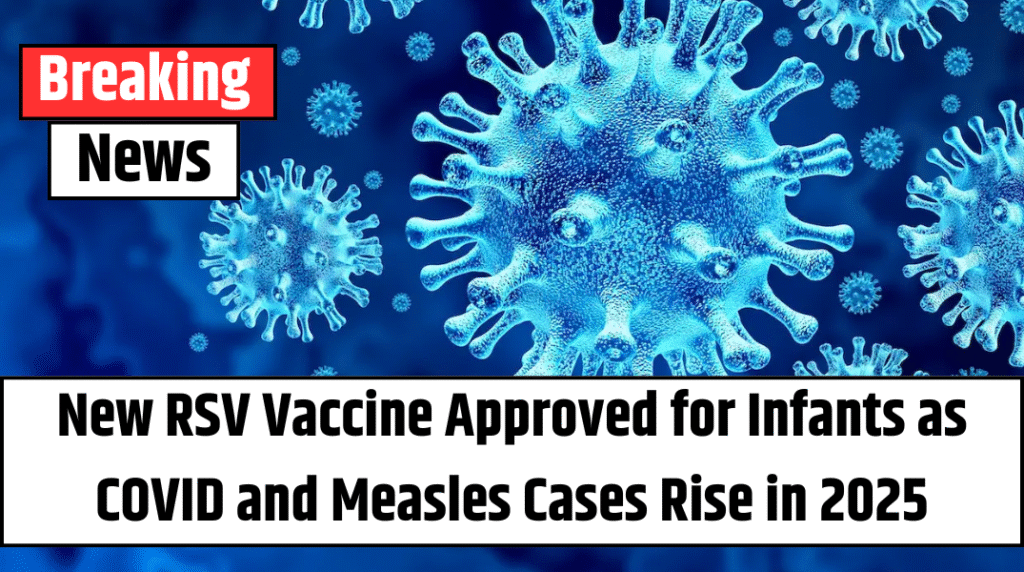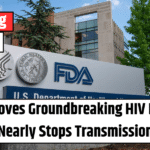The American Medical Association (AMA) is once again sounding the alarm on public health as a wave of concerning developments marks summer 2025—from a rapidly spreading COVID variant to a surge in measles cases and critical new advancements in RSV protection and gonorrhea treatment.
In the latest episode of the AMA Update, Andrea Garcia, JD, MPH, Vice President of Science, Medicine and Public Health at the AMA, joined Chief Experience Officer Todd Unger to unpack the week’s most pressing health news and share expert insights on what lies ahead.
COVID-19’s ‘Nimbus’ Variant Gains Ground Across the U.S.
The spotlight is on the new COVID-19 variant NB.1.8.1, dubbed “Nimbus,” which has quickly become the dominant strain in the U.S., accounting for over one-third of new cases according to the CDC. Nimbus is a sublineage of Omicron and was previously responsible for a spike in infections across Asia earlier this year.
Although summer COVID waves are not new, this variant’s enhanced spike protein mutations may increase transmissibility—raising concerns just as public health authorities had hoped for a calmer season. The World Health Organization has designated Nimbus as a “variant under monitoring.”
“While we don’t yet know the full impact of Nimbus, it’s clear we’re entering another critical phase of pandemic surveillance,” said Garcia.
COVID Long-Haulers Still Struggling—Even After Three Years
Two major studies have brought fresh insights into the long-term effects of COVID. The first, published in Open Forum Infectious Diseases, tracked patients for a full year and found that physical recovery improved significantly by the 3-month mark, but mental health recovery lagged—with notable improvements taking nine months or more.
The second study, in the Journal of Medical Virology, found that 20% of people who had COVID still experience at least one symptom three years later. These symptoms include chronic fatigue, anxiety, breathlessness, and loss of smell or taste. Patients previously hospitalized for COVID also showed a higher mortality risk at the three-year mark.
“The long tail of COVID-19 continues to impact quality of life for millions,” Garcia emphasized. “We need to start treating long COVID as a chronic illness.”
Measles Comeback: U.S. Nearing Record-Breaking Year
After being declared eliminated in the U.S. in 2000, measles is making a disturbing comeback. With 1,197 confirmed cases reported across 35 jurisdictions so far in 2025, the country is on pace to surpass the previous high of 1,274 cases in 2019.
States like Texas (744 cases), New Mexico (81), Kansas (76), and Oklahoma (20) have seen significant upticks, while new cases have recently emerged in California, Colorado, Michigan, Montana, and Arizona.
The AMA continues to emphasize the importance of routine childhood vaccinations, as most outbreaks are linked to unvaccinated populations.
Game-Changer for Infants: New RSV Immunization Approved
In an important milestone for pediatric health, the FDA has approved clesrovimab, a monoclonal antibody designed to protect newborns and infants during their first RSV season. It joins nirsevimab, approved in 2023, as one of two RSV immunizations for young children.
Also Read – Maui Wildfire Survivors Still Battling Mental Health and Poverty, Study Finds
This comes just in time, as RSV hospitalizations tend to spike in fall and winter, particularly among infants and seniors. The new treatment is expected to be reviewed by the Advisory Committee on Immunization Practices (ACIP) later this month.
First New Gonorrhea Antibiotic in Decades Shows Promise
With antibiotic resistance on the rise, especially in sexually transmitted infections like gonorrhea, the FDA is now reviewing dolophrosyne, a novel oral antibiotic that could revolutionize STI treatment.
Gonorrhea has become increasingly difficult to treat due to resistance to ceftriaxone—the current gold standard. Dolophrosyne’s approval would mark a major leap forward in combating a looming public health threat.
“This is a critical development at a time when treatment-resistant infections are on the rise,” Garcia noted.
Controversial Shake-Up in CDC Vaccine Committee Sparks Concern
Another major development came from Washington, D.C., where the entire 17-member ACIP committee was dismissed by the Department of Health and Human Services earlier this month. Eight new members were quickly appointed by HHS Secretary Robert F. Kennedy Jr., sparking backlash from the medical community.
The AMA strongly criticized the move, calling it a disruption to decades of trusted public health guidance and warning that politicizing vaccine policy could erode public trust at a pivotal time.
Looking Ahead: A Critical Summer for Public Health
As summer progresses, the AMA and public health experts are urging physicians and patients to remain vigilant. With climate-sensitive disease trends, rising vaccine hesitancy, and evolving pathogens, the health landscape in 2025 remains highly dynamic.
Also Read – Study Warns Medicaid Cuts Could Leave Millions Without Health Coverage
“We can’t let our guard down,” said Garcia. “Whether it’s COVID, RSV, or measles, early action and accurate information are our best tools.”



